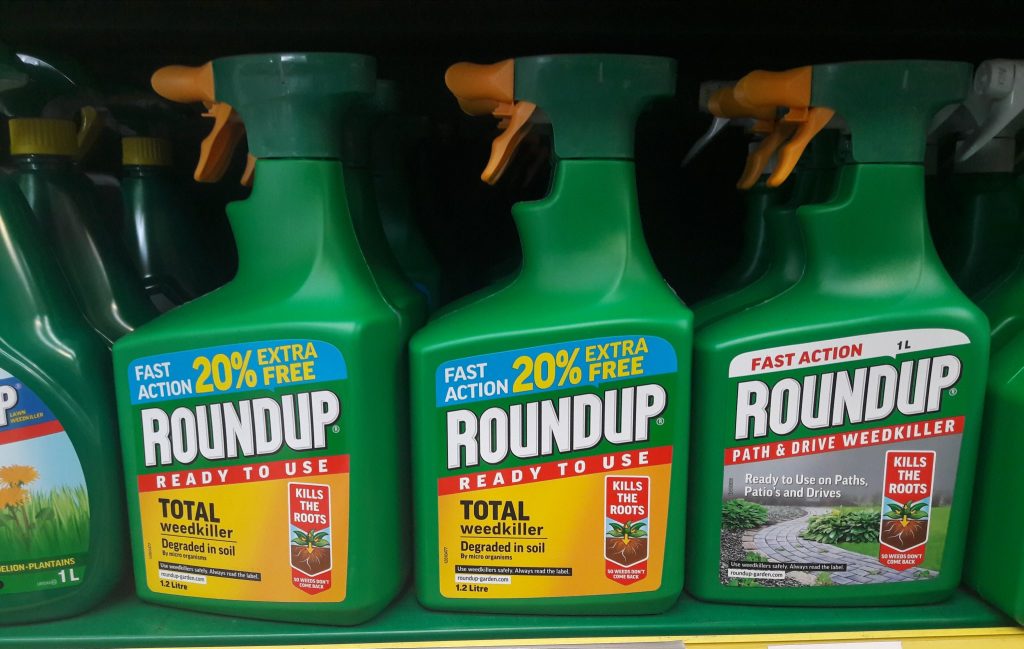
The European Commission has doubled down on its stance to renew the authorisation of the controversial herbicide glyphosate for another decade despite mixed reactions from EU lawmakers, dismissing concerns over identified scientific data gaps.
Stressing that the protection of human and environmental health is a “top priority” of this Commission, Health and Food Safety Commissioner Stella Kyriakides defended the decision to extend the renewal of the herbicide to lawmakers during a plenary session in Strasbourg on Wednesday (4 October).
“We proposed the renewal of glyphosate following the science. We will continue to do so, continuously assessing all available data,” she subsequently wrote on X, adding that this is the EU’s “commitment to our citizens and farmers”.
The decision comes on the back of months of heated debate over the impact of Europe’s most widely used herbicide on health and the environment, particularly over whether glyphosate can be considered carcinogenic – i.e. a driver of cancer in humans.
Data gaps dismissed
It follows the publication of the European Food Safety Authority (EFSA)’s long-awaited conclusions on the risk posed by the divisive herbicide back in July, in which it concluded there were ‘no critical areas of concern’, although data gaps were identified on certain aspects.
This includes “the assessment of one of the impurities in glyphosate, the consumer dietary risk assessment, and the assessment of risks to aquatic plants,” the authority said.
Pointing out that glyphosate is the “most studied pesticide in the world”, the Commissioner said the Commission is “confident” that EFSA’s assessment provides a solid basis for this proposal.
“[We] must follow signs as confirmed by our independent agencies which follow existing rules,” she said, adding that if we are to have “robust, independent and evidence based systems, we must abide by their results”.
Although Kyriakides acknowledged that EFSA’s work concluded that there were “some data gaps and issues for which assessment could not only be finalised”, she maintained that this was not enough to reconsider the renewal of the herbicide.
Pointing out that this is the case with “practically all EFSA conclusions for active substances in their role as risk managers,” the Commissioner concluded that data gaps “do not mean that the approval cannot be renewed for glyphosate”. She also pointed out that the Commission’s proposal includes a number of conditions and restrictions for use.
However, the Commissioner promised that the EU executive “would not be standing by idly”, stressing that it will “look continually” at any new evidence as it emerges.
“There will be a permanent scrutiny and we will take action immediately, not only to amend, but also to withdraw this approval if it is warranted,” she said.
Mixed bag
However, Kyriakides’ reassurances failed to win over the Greens, who have put up a staunch campaign against the herbicide’s reauthorisation.
Green MEP Jutta Paulas lambasted the ongoing re-approval process, which she said has been “marked by massive lobbying from pesticide manufacturers and glaring data gaps in the review process”, while fellow Green MEP Martin Häusling called the move a “surprise coup”.
“No matter how you look at it: glyphosate remains a highly potent poison that must be removed from the market,” he said, calling an extension of the approval, even with further improvements, a “lazy and unsustainable compromise at the expense of people, nature and farmers”.
The Greens have since launched a bid for a vote on the matter in Parliament. However, MEPs have no say in the reapproval process, as it is only the implementation of existing laws – a hangover from the pre-Lisbon treaty days.
The discussion comes on the back of a recent IPSOS poll – which polled attitudes to pesticide use across Denmark, France, Germany, Poland, Romania and Spain – and found that the majority of respondents (61.9%) believe that glyphosate should be banned in the EU, with the figure rising to 70.5% in France and 68.3% in Germany.
Meanwhile, as many as 85.3% of respondents in the countries polled are in favour of halting the use of a specific pesticide if new scientific evidence emerges indicating that a particular pesticide may cause harm to human health and/or the environment until more is known.
For Martin Dermine, executive director of the Pesticides Action Network (PAN) Europe these results are a “clear call to policymakers to reduce pesticide use and to be much stricter in authorising pesticides”.
However, for others, such as the centre-right EPP, the renewal is a welcome development. “Plant protection products and reducing them and ensuring safe application is a very important goal. But […] banning this is not the right path,” centre-right MEP Peter Liese said.
Meanwhile, fellow centre-right MEP Herbert Dorfmann pointed out there are potential alternatives and that work needs to be developed on these, he maintained that as things currently stand, agriculture “needs a glyphosate as a herbicide because there is no substitute available at the moment”.
But for the liberals, the issue is neither black or white, with the chair of the European Parliament’s environment committee Pascal Canfin taking a more nuanced approach.
“There are two messages from science,” the liberal lawmaker said, criticising the fact that “half the MEPs in the hemicycle only listened to one message, while the other half only listened to the other”.
“We are trying to listen to both messages because often things are more complex than the simplistic view that many people want to put across,” he said, lending his support for the compromise decision of the Commission to renew the substance for 10 years rather than the maximum 15 years.
More
(Don’t) Show me the Money! Agri MEPs reject Green Cash Plan for Pesticide Reduction
Sustainable Food Systems – Taking Action on the Ground in Germany






1 Trackback / Pingback
Comments are closed.